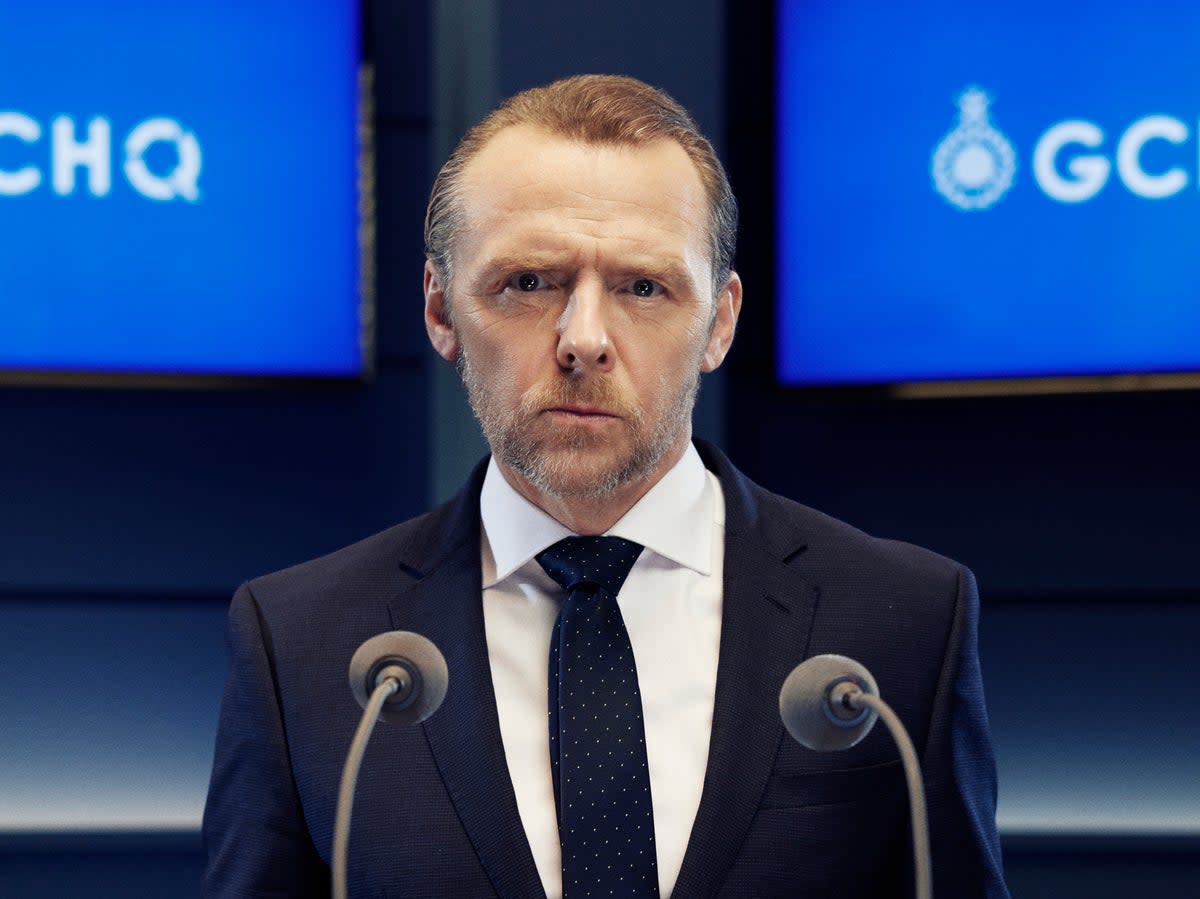The Undeclared War review: Simon Pegg-starring cyber crime drama is naff and politically muddled

I’ll say this about The Undeclared War: it doesn’t want for ambition. The six-part Channel 4 drama, created by seven-time Bafta winner Peter Kosminsky, attempts to take a wide-ranging, holistic approach to the 21st century TV thriller. Cybercrime, international relations, political tensions, racial politics, mental health – they’re all thrown into the mix. It’s a shame, therefore, that the end product doesn’t have anything worthwhile to say about pretty much any of them.
The story follows Saara (Hannah Khalique-Brown), a work experience intern at the UK Government Communications Headquarters (GCHQ). She’s picked a hell of a day to start: the office is reeling from a mysterious cyberattack, of origin unknown. Through her own fledgling talent, or through sheer good luck, Saara spots another virus embedded within the existing cyberattack. For the entire security team at GCHQ – which includes her boss Danny Patrick, played with weary credibility by Simon Pegg – it’s clear that the worst is yet to come. Against the backdrop of this we have an unsteady political landscape: in the world of The Undeclared War, Boris Johnson has been usurped by Andrew Makinde (Adrian Lester) – the country’s first Black PM, and a Tory – who fears the electoral ramifications a cyberattack could have.
At the core of The Undeclared War, there is something substantial. Cyberattacks are a very contemporary but widely under-acknowledged real-world danger; the idea of a series shedding light on our country’s response to them is intriguing. However, the execution here just lets it all down. The acting is stilted and unconvincing; the cast are not helped by a witless, clunky script.
Fanciful vignettes dramatising the coding process are particularly naff (we see Saara strolling through library corridors, solving puzzles and opening doors to represent what’s going on in her computer). But there are also little moments that ring totally false. At one point in episode one, Saara’s phone rings, and the person calling is listed as “Sis”. Has any sibling on the planet ever put their sister into their phone as “Sis”? It’s one of the most graceless, lazy examples of exposition I can remember seeing.
Politically, too, the series is muddled. Tethering its reality so closely to our own – references to real-world touchstones like Johnson, the financial crisis, and the Labour party abound – only serves to highlight the discrepancies in its fuzzy near-future. But the central mysteries of The Undeclared War – who’s behind the cyberattack, and what are their intentions – may be enough to carry you through. The series is at its best when it’s ratcheting up the tension. Just don’t expect it to convince when it comes to anything deeper.


